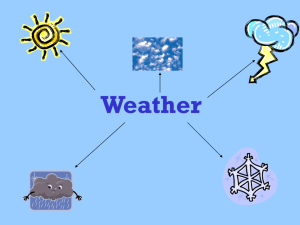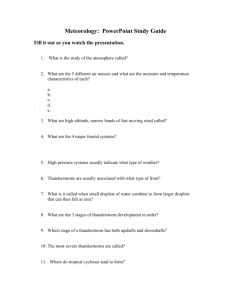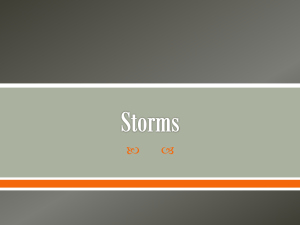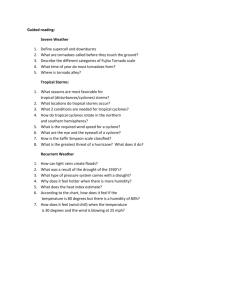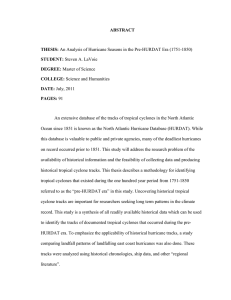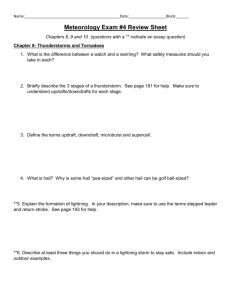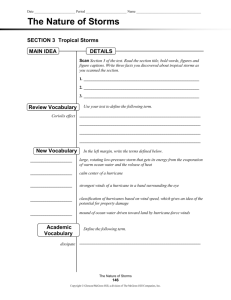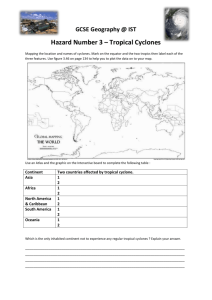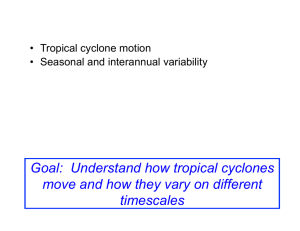Mechanics of Tropical Cyclones Nick Woods
advertisement
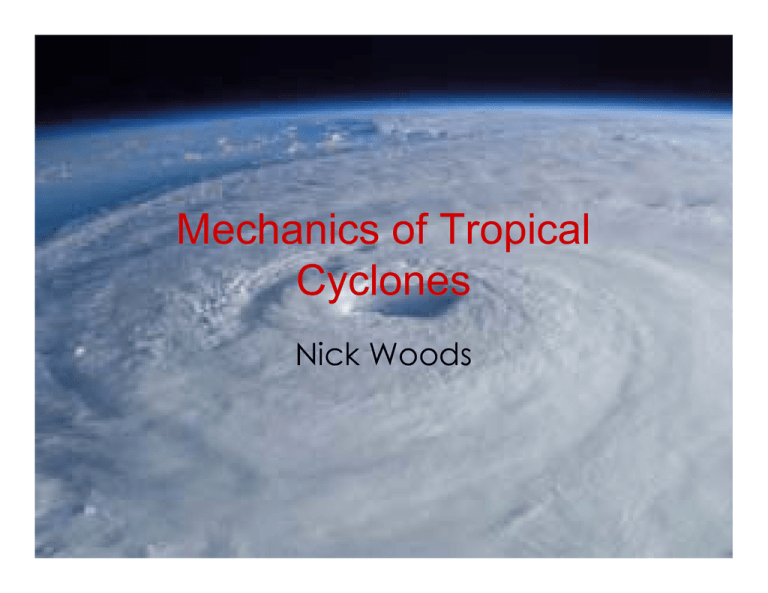
Mechanics of Tropical Cyclones Nick Woods Tropical Cyclones • Cyclone - large system of spinning air that rotates around a central low pressure. • Tropical - Warm air at the center -> allows for development Image of Hurricane Andrew, Courtesy of Greenpeace Tropical Cyclones • Typhoon – NW Pacific Ocean • Severe Tropical Cyclone – SW Pacific Ocean, SE Indian Ocean • Severe Cyclonic Storm – N Indian Ocean • Tropical Cyclone – SW Indian Ocean • Hurricane – N Atlantic, S and NE Pacific Tropical Cyclone Formation Tropical Cyclones form during Summer and early Fall Image Courtesy of NASA Earth Observatory Hurricane Formation Tropical Disturbance – Convergence of surface winds Image/Text/Data from the University of Illinois WW2010 Project. Three Methods of Convergence of Surface Winds • Northern and Southern Hemisphere easterly trade winds near the equator. • Convergence of air between warm and cold masses • African Easterly Wave Increased Organization and Intensification • CISK Theory Image/Text/Data from the University of Illinois WW2010 Project. FCoriolis = −2m(ω × v r ) FCoriolis = −2m(ω × v r ) Increased Organization and Intensification • Coriolis Force – Causes Storm Rotation FCoriolis = −2m(ω × v r ) Tropical Cyclones as Carnot Engines A-B: Air Expands, Gains energy B-C: Air Expands Adiabatically C-D: Heat from Surface Radiated D-A: Adiabatic Compression “Hurricanes: Tempest in a Greenhouse” Kerry Emmanuel Features of a Hurricane • Eye/Eye Wall • Spiral Rain Bands Image Courtesy of NASA Earth Observatory Storm Surge Surface winds push water in front of storm SLOSH-National Hurricane Center Image Courtesy of NASA Earth Observatory Hurricane Dissipation • Removal of Heat Source • Trade Wind Inversion-Sub-tropical High • Strong Upper Level Winds Atlantic Hurricane Prediction Image Courtesy of NOAA Atlantic Hurricane Prediction Image courtesy of NOAA El Niño Number of storms in Atlantic decreases in El Niño years Image/Text/Data from the University of Illinois WW2010 Project. Saharan Air Layer Image Courtesy of NOAA Current NASA Hurricane Research • • • • • QuikSCAT TRMM Aqua CloudSAT CALIPSO Intensity Forecast Experiment (IFEX) Prediction of Intensity of Hurricanes • Low flying aircraft • SAL impact • Decay Forecasts Pacific vs. Atlantic 2006 Pacific Tropical Cyclone Season • NW Pacific-22 Storms, 15 Typhoons, 7 Super Typhoons, >2,000 dead • Eastern Pacific-18 Storms, 5 major, Total Damage - $170.8 Million • http://www.typhoon2000.ph/
